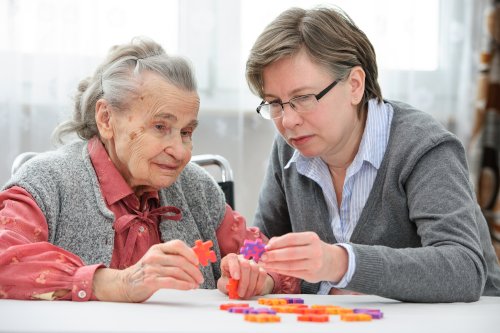“Normal pressure hydrocephalus” (NPH) sounds complicated, but it’s simply an abnormal build-up of cerebrospinal fluid in the brain’s ventricles or cavities. It occurs if the normal flow of spinal fluid through the spine and the brain is blocked in some way. This can occur as a result of a hemorrhage, head trauma, an infection, a tumor, or complications from surgery. Sometimes it happens when none of these problems are present.
Why is this important to family and caregivers of the elderly?
First, growing old increases the risk of NPH.
Second, NPH can result in impaired mental ability and progress into dementia. It also may cause difficulty walking and/or urinating.
Third, NPH symptoms are similar to those of Alzheimer’s disease, Parkinson’s disease, and Creutzfeldt-Jakob disease, so the condition is often misdiagnosed.
NPH can be treated by surgically placing a tube that allows the excess spinal fluid to drain into the abdomen where it can be absorbed. If not treated, NPH becomes progressively worse.
The National Institutes of Health provides an excellent overview of the condition.
If your elder seems to be losing mental capacity, has difficulty walking and/or urinating and your doctor has ruled out Alzheimer’s, Parkinson’s and Creutzfeldt-Jakob disease, ask a neurologist about the possibility of NPH.
Elizabeth Landsverk, MD, Board Certified in Internal Medicine, Geriatrics and Palliative Care Medicine

Elizabeth (Dr Liz) has over twenty years of experience in providing medical care to the elders. She is board-certified in Internal Medicine, Geriatric Medicine and Palliative Care Medicine. Dr Landsverk founded ElderConsult Geriatric Medicine, a house calls practice, to address the challenging medical and behavioral issues often facing older patients and their families.

